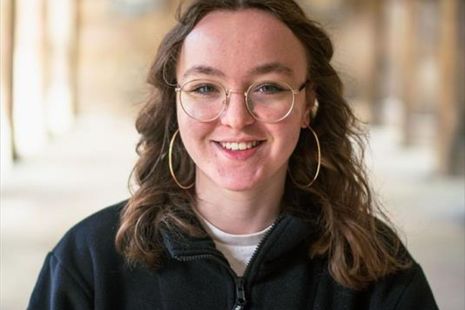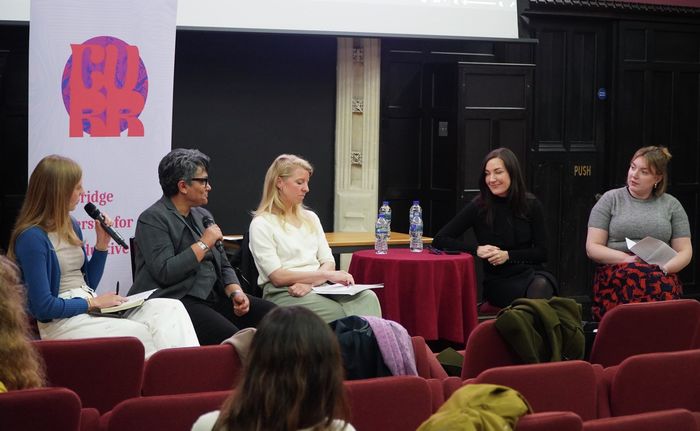In Conversation with the President of Cambridge Rape Justice
Lorna Beal on combining activism, student community and her comedic experience to found CRJ.

It was obvious from the start of our conversation that for Lorna Beal, Cambridge Rape Justice (CRJ), is an incredibly important, but challenging project. Despite only starting five months ago, the society has quickly progressed to be one of the most prominent groups amongst Cambridge’s avenues of support. It aims at supporting those who have experienced sexual violence by providing a safe place and community for survivors and their allies. Our conversation follows on from CRJ’s flagship event, ‘Jam for Justice’, hosted at Jesus College Bar, where a celebration of student bands raised over £300 for Cambridge Rape Crisis Centre.
Cambridge Rape Justice was born from the feelings of “hopelessness and frustration” experienced by Lorna and her friends, after frequently being subjected to “casually un-consensual situations”. Though she admits to some nervousness when considering founding the society, Lorna recounts feeling reassured by the depth of support from fellow students. She made the decision to set it up over Christmas of 2024. When asked about the process of creating a society, Lorna laughs openly, describing it as “a lot more confusing” than she initially thought. The process was buried beneath “seemingly unending bureaucracy and forms to fill out”. I imagine that any student who has tried to start up a University society or group can empathise.
“who are you meant to turn to?”
Lorna acknowledges the upsetting source of needing such support in the first place. “It’s quite vulnerable, especially as someone who’s experienced unconsensual situations before, to have to think about these and to talk about them all of the time.” She explains that she felt a sense of responsibility both towards others and to herself to do so. She emphasises that CRJ acts as “a community of rape and sexual assault survivors and their allies,” and “a place where people can hang out and talk”.
It’s fundamental to the society’s space that this doesn’t necessarily entail “talking about experiences that have happened” with survivors, but it instead functions as “a safe space” – and one distinctly separate from the difficult and often daunting worlds of police and University disciplinary procedures. It aims at offering emotional support, not emotional rollercoasters. This may also be the mandate of other societies that support survivors of sexual violence, but for CRJ, the baseline is “our community”.
Lorna acknowledges the need for reform to the existing legal procedures for sexual violence. She stresses that this is required both within the university and externally. In both cases, she emphasises the necessity of the prevention, not simply reparation, of sexual violence. With clear frustration, she describes how even she “cannot understand all” of the law surrounding the handling of sexual violence, despite immersing herself in the study of these laws. With such procedures already “very inaccessible,” it’s no wonder that survivors feel some sense of hopelessness.
She references a Varsity article written earlier this year, which found that the university’s disciplinary body the Office of Student Conduct, Complaints and Appeals (OSCCA), held zero disciplinary hearings for the eight cases of sexual misconduct filed. No one faced serious sanctions. With this institutional failing, she asks, “who are you meant to turn to in this case?”
“the current treatment of sexual assault survivors in court is […] “appalling””
As for CRJ’s role, she says that “it’s really heartbreaking to have to have CRJ as a society […] I wish it didn’t exist, but the community response to it feels really amazing,” particularly the engagement from other colleges. Lorna aims for CRJ to “reach every college in Cambridge” and plans to have a big presence at the upcoming Freshers’ Fair.
Her confidence and drive to do so come from being a Footlight. Her stand-up comedy experience instilled her with an ability to “confidently speak about nothing, about bullshit” and increased her self-confidence to the point where she felt she could start CRJ. She adds that, “this unique intersection between stand up and CRJ is probably the most important thing in my life”.
She aims for this intersection to continue after graduation, and hopes to pursue criminal law, with a particular focus on the legislation of rape and sexual assault. She emphasises that the current treatment of sexual assault survivors in court (including “the way lawyers speak” and the use of sexual history as form of connected evidence in court) is “appalling”. She would love to be a part of instigating reform to the overtly flawed practice. She critiques both the law and the media as propagating a victim-blaming culture, where justice is skewed far more than served. Society needs to stop asking what a survivor was wearing, or if they were drunk, but rather reflect on the systemic injustices and issues that necessitate the creation of organisations like CRJ: organisations that should never have to exist in the first place.
If you or anyone you know has been affected by sexual violence and wish to get in contact with CRJ, their Instagram is below:
https://www.instagram.com/camrapejustice?igsh=b3NzZXo5NXE5aHU1
Alternatively, we have also linked to other organisations and charities that may be of use:
https://cambridgerapecrisis.org.uk/
 News / Judge Business School advisor resigns over Epstein and Andrew links18 February 2026
News / Judge Business School advisor resigns over Epstein and Andrew links18 February 2026 News / Hundreds of Cambridge academics demand vote on fate of vet course20 February 2026
News / Hundreds of Cambridge academics demand vote on fate of vet course20 February 2026 News / Petition demands University reverse decision on vegan menu20 February 2026
News / Petition demands University reverse decision on vegan menu20 February 2026 News / CUCA members attend Reform rally in London20 February 2026
News / CUCA members attend Reform rally in London20 February 2026 News / Caius students fail to pass Pride flag proposal20 February 2026
News / Caius students fail to pass Pride flag proposal20 February 2026










